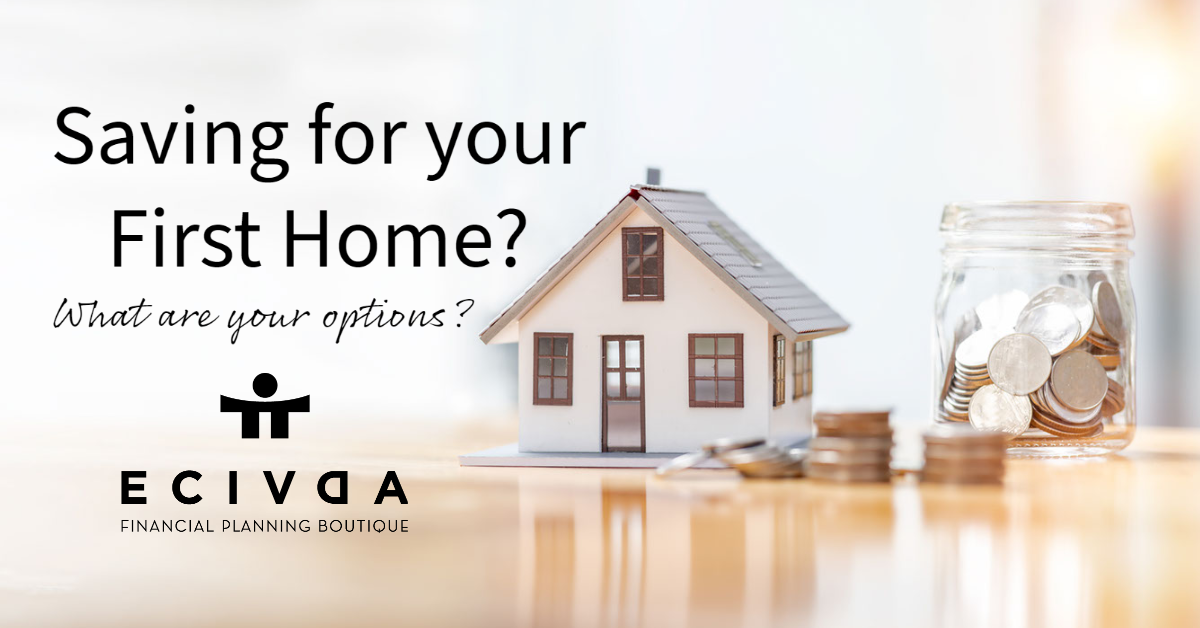The New First Home Savings Account (FHSA)
By: Louai Bibi, Advisor Associate
We are pleased to announce that we will be able to offer our clients the new First Home Savings Accounts (FHSA) at Ecivda Financial Planning Boutique as of June 12, 2023! If you are in the market for your first home, or if you know someone that is in the market for their first home, this is an exciting new opportunity!
Outlined Below: What is the FHSA & how does it work, who is eligible to open one, the benefits & planning opportunities around this new account, what happens if you no longer wish to buy a home, and how to get in touch if you’d like to review considering this account for yourself.
What is the FHSA and how does it work?
This exciting new account came about as part of the 2023 federal budget to help Canadians build more tax-free savings to fund their home purchase goals. The FHSA characteristics are a blend of the TFSA, RRSP, and RESP rules; so it is easy to get confused. I have compared the FHSA to the RRSP & TFSA in a past blog, which I encourage visiting if you’d like to look at specific differences and similarities of each account.
The basic premise is:
- You can contribute $8,000 per year, up to a lifetime limit of $40,000. Contributions are tax-deductible!
- Since the FHSA came into effect on April 1st of 2023, you can only deduct contributions made between April 1st and December 31st of 2023 for the 2023 tax year. Contributing in the first 60 days of the following year does not count towards your 2023 taxes like RRSP contributions do.
- You can carry forward the tax deduction indefinitely to a year where your taxable income is higher.
- These contribution limits are separate from those of the TFSA and RRSP.
- You can hold a variety of investments in the FHSA, or you can simply choose to keep the funds in savings plan within the account.
- If you are withdrawing from this account to purchase a home, you can do so tax-free. Otherwise, you would pay taxes on the withdrawal at your respective tax rate.
- You can carry forward unused contribution room to future years. So, if you open a FHSA in 2023 and don’t fund it, in 2024 you can contribute $16,000. You can only carry forward room if you have already opened your FHSA.
Who is eligible to open a FHSA?
Most of us read ‘first home savings account’ and immediately assume that this account won’t be relevant to them if they have owed a home in the past. This is not necessarily the case! The definition of first-time home buyer is unique here and I’ll address this further below.
You are eligible to open a FHSA if you satisfy the following conditions:
- Canadian resident for tax purposes.
- Between the age of 18 and 71 years old.
- Have not owned a home in the current year or last four years prior to opening a FHSA.
- Have not lived with a spouse or common-law partner who owned a home in the current year or last four years prior to opening a FHSA.
Disclaimer: this account may not be appropriate for US taxpayers. Please consult with your advisory team to ensure the FHSA is an appropriate fit if this applies to you.
What are the benefits and planning opportunities of the FHSA?
I’ve addressed the features and eligibility of the FHSA and you may be wondering how this account may benefit you. Here are a few benefits that you may find compelling:
- You get to deduct your contributions against your taxable income. If you had $50,000 in taxable income in 2023 and contributed $8,000, you will be taxed as though you made $42,000 instead.
- As great as the tax deduction can be now, you may wish you took advantage of it when your income was higher. You can absolutely do so!
- While there is a lifetime contribution limit, there is no limit on how much you can withdraw and it is tax-free if it is for a qualifying home purchase! Your account could have doubled in value and you won’t owe a cent in taxes.
- Many of us may be familiar with the Home Buyer’s Plan feature of the RRSP (RRSP HBP) that let’s us borrow up to $35,000 from our RRSPs tax-free as a loan. If you have existing savings in a RRSP that you may want to use for your home purchase but also want to save regularly in a FHSA, why not take advantage of both programs?
- Better yet, if you are buying a home with your spouse or common-law partner, how great would it be if you each leveraged the RRSP HBP and the FHSA? That is a lot of tax-free money to put towards your home!
- There are more advanced tax applications of the FHSA that can be assessed on a case-by-case basis, regardless of what life stage you are in. I’ll save these for another blog, but there are some unique and beneficial ways to merge your first-home savings goals with your ongoing tax planning.
What if I change my mind about buying a home?
if buying a home is no longer a part of your current financial plan, this is no problem at all. You can transfer the funds in your FHSA into your RRSP without needing to withdraw and pay taxes.
Beyond this, you need to close your FHSA by no later of December 31 of the year in which the earliest of the following events occur:
- 15th anniversary of opening your first FHSA.
- You turn 71 years old.
- The year following your first qualifying withdrawal from your FHSA.
How do I get in touch if I’d like to learn more?
The FHSA is an exciting opportunity for eligible Canadians and we are exciting to be able to offer it to our clients. We would love to review the merits of implementing the FHSA into your financial plan but believe it is also important to consider the existing options available to first-time home buyers as well how each account fits our individual circumstances.
If you are saving for your home purchase goal, please get in touch with any member of our advisory team to coordinate opening/funding your FHSA. We will be happy to help you tailor your FHSA contributions & investment portfolio to your goals!
You are welcome to book yourself into any of our calendars here.

